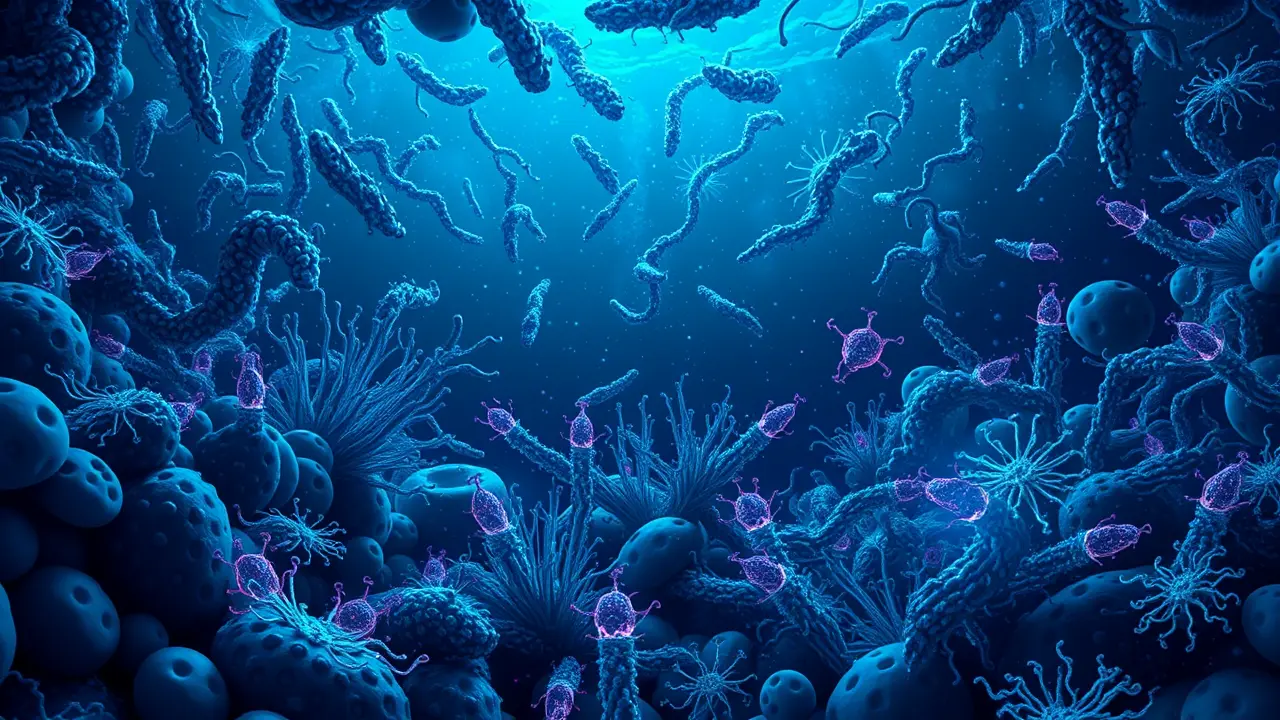
SciencebiologyMicrobiology
Life found in a place scientists thought impossible
RA
Rachel Adams
5 hours ago7 min read
In the crushing, lightless depths of the ocean, where pressure would annihilate a human in an instant and conditions are so alkaline they mirror household bleach, scientists have made a discovery that fundamentally rewrites the rules of biology. Life, in the form of a resilient community of microbes, is not just eking out an existence but actively thriving in an environment with a staggering pH of 12, a level of alkalinity so extreme it was previously considered a biological dead zone, a place where the very building blocks of cellular life should unravel.This isn't merely a footnote in a scientific journal; it is a profound testament to life's tenacity, a discovery that echoes the haunting, otherworldly ecosystems found at hydrothermal vents, yet pushes the boundaries of survivability even further. The methodology behind this breakthrough is as critical as the finding itself.Instead of relying on DNA, which can degrade or be contaminated in such harsh settings, researchers turned to the more durable forensic evidence of lipid biomarkers—distinct molecular fossils that act as a durable signature of past and present life. By analyzing these chemical ghosts, the team pieced together a picture of a sophisticated microbial economy operating in total darkness, one built on the metabolism of methane and sulfate.This process is a crucial, yet poorly understood, component of the deep-sea carbon cycle, a vast planetary thermostat that regulates Earth's climate by sequestering massive amounts of carbon. The implications ripple outwards, touching upon one of science's greatest mysteries: the origin of life itself.The prevailing 'primordial soup' theory, which posits life began in warm, sunlit pools, is now powerfully challenged by discoveries like this. It lends compelling weight to the hypothesis that life may have first sparked not in a gentle pond, but in the violent, chemically rich, and extreme environments of the early Earth, perhaps in the alkaline seeps of a young ocean floor.This perspective reframes our search for life beyond our planet; if organisms can flourish in the caustic, high-pressure hellscape of a pH 12 seabed, then the icy, subsurface oceans of moons like Europa or Enceladus, or the ancient, dried-up riverbeds of Mars, suddenly seem far more promising habitats. The discovery serves as a stark reminder of the vast, unexplored wilderness that constitutes our own planet, a frontier that holds secrets not just about our past, but about the potential for life across the cosmos. As we push the boundaries of our understanding, each finding like this forces a humbling recalibration of what we deem 'habitable,' suggesting that life, in its relentless drive to persist, is far more ingenious and adaptable than we have ever dared to imagine.
#featured
#deep sea
#microbial life
#extreme environments
#methane metabolism
#carbon cycling
#origins of life
Stay Informed. Act Smarter.
Get weekly highlights, major headlines, and expert insights — then put your knowledge to work in our live prediction markets.
Related News
© 2025 Outpoll Service LTD. All rights reserved.
